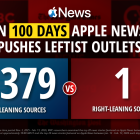Can you put a price on your privacy? Twitter can, apparently.
Say goodbye to your information privacy on Twitter. It now belongs to advertisers. “Twitter has removed a privacy feature that allowed all users to stop sharing some private information with advertisers,” The Verge wrote on April 8. It added, “The setting prevented Twitter from sharing information like the ads you saw or interacted with and the tracking identifier for your phone.”
In short, the data is used by Twitter to show advertisers that users are indeed viewing and engaging with the ads it paid for. Through this, Twitter says it will be able to “continue operating as a free service.”

Twitter alerted users to this change with a pop-up notification which displayed when users opened up the website on the morning of April 8. A Twitter spokesperson told The Verge the update is “part of our ongoing work around transparency and control. We want to ensure that people understand the settings we provide, what they do, and how to use them.”
The Verge explained that this is a modification of a previous feature which allowed users to toggle how much of their information was being shared by the platform:
“An option in Twitter’s privacy settings called ‘Share your data with Twitter’s business partners’ used to let you disable sharing of this information. That setting still exists, but Twitter now says it has removed your control over ‘mobile app advertising measurements.’ Disabling the setting can still prevent sharing of other information, such as your interests. Other Twitter privacy settings, like disabling web tracking, are still available. Twitter will not share your name, email address, phone number, or username.”
Europeans have firmer laws on user data privacy and are exempt from this rule change. One rule, dubbed the “Right to be Forgotten,” gives EU citizens the right to ask for links to be removed from search results provided that, as written in the Court of Justice of the European Union’s press release, “the data appear to be inadequate, irrelevant or no longer relevant.”
While Twitter isn’t removing users’ ability to toggle how much of their information is shared altogether, this update most definitely will give Twitter more control so that it can protect its bottom line.
What may concern users however is that the platform has been accused of treating users differently based upon their interests.
[ads:im:1]
Twitter automatically tags interests for users’ accounts based on their activity. However, it appears as if accounts are being flagged based on their interests. In at least one popular user’s case, it may have caused his account’s reach to be suppressed.
MyPillow CEO Mike Lindell had announced in a Rose Garden press conference with President Trump that his company was going to switch from pillows to masks for medical workers. He explained to the Media Research Center that while his popularity spiked, his Twitter following experienced a mere trickle of new engagement.
The Media Research Center reached out to a Twitter spokesperson, who claimed that Twitter had taken no action on the account. But Lindell said that as soon as he cleared the interests in his settings, he gained an impressive amount of followers. “I never selected my interests,” he said. “Mine were tagged corruptly.”
MRC TechWatch's Senior Analyst Corinne Weaver contributed to this report.
[ads:im:2]









